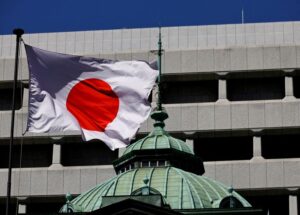Pakistani budget expected target revenue generation moderate gr
Pakistani budget expected target revenue generation moderate gr
ISLAMABAD: Pakistan is expected to target tax revenue growth of up to 20 percent by focusing on tax evaders and will offer concessions to the industrial and agricultural sectors to spur growth, analysts said on Thursday, a day before the annual budget was released.Finance Minister Ishaq Dar will release the federal budget in parliament on Friday, in the absence of Prime Minister Nawaz Sharif, who is recovering from open-heart surgery in London.Annual budget outlay is expected to be around 4,400 billion rupees ($42.04 billion), with a fiscal deficit target of around 3.8 percent, according to a pre-budget briefing from Topline Securities Ltd, a Karachi-based research organisation.Similar briefings from Arif Habib Research Ltd, Elixir Securities, Foundation Research and other analysts corroborated those expectations, with fiscal deficit expectations ranging between 3.8 and 4 percent.”I think tax increases would be across the board, but right now it looks like non-filers [of income tax] would be the target,” said Mohammed Sohail, CEO of Topline Securities.”Another target is elimination of subsidies and discretionary tax incentives [for industries].”The government last year targeted tax dodgers by introducing higher rates of withholding taxes on banking and other transactions for those who do not file annual income taxes.The tax revenue target is expected to be around 3,700 billion rupees ($35.35 billion), an increase of 20 percent in absolute terms from last year’s target of 3,100 billion rupees ($29.62 billion), analysts say.The government is on track to miss its tax target of 3,672 billion rupees ($35.12 billion) for this fiscal year ending June 30, with tax revenue hitting 2,481 billion rupees ($23.73 billion) through March 2016.Around 200 billion rupees ($1.91 billion) in new tax measures are expected, including the renewal of a so-called “Super Tax” of 3 percent (4 percent for banks), imposed last year as a one-time measure to pay for the war against Islamist militants.The “Super Tax” targets companies with more than 500 million rupees ($4.78 million) in pre-tax profits, who number in the hundreds in Pakistan, said Sohail.Other additional taxes are expected on commercial gas and electricity connections, sugar, car leases, cigarettes and possibly on non-profit organisations, analysts said.FISCAL DEFICIT TARGETAnalysts expect the new fiscal deficit target may be missed, as Pakistan exits the strictures of an International Monetary Fund assistance package this year and the government prepares for a 2018 general election.On Monday, the government announced 1,675 billion rupees ($16.00 billion) in annual development spending at both the federal and provincial level.On Thursday, Pakistan announced it had missed its economic growth target by 0.79 percent, hitting 4.71 percent growth in the fiscal year ending in June, the highest level seen in eight years. On Monday, it set a growth target of 5.7 percent for the fiscal year beginning in July.Last year, the agricultural sector, the largest employer by sector in Pakistan, shrank by about 0.19 percent, he said, mainly due to structural issues and a poor cotton crop.The textile sector, which analysts say lost up to $3 billion in exports last year due to power shortages, a global drop in demand and a poor cotton crop, will also be targeted for revival, textile manufacturers told Reuters.($1 = 104.5600 Pakistani rupees)





